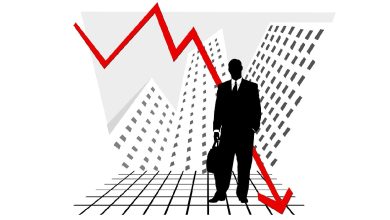Consumer Confidence Craters in August

President Biden might be optimistic about the economy. Federal Reserve Chairman Jerome Powell might be optimistic about the economy. But the average American?
Not so much.
Consumer confidence cratered in August, falling from a downwardly revised 114.0 last month to 106.1. The projection was for a slight increase to 116.
Americans don’t think the economy is doing well currently. The Present Situation Index—based on consumers’ assessment of current business and labor market conditions—fell to 144.8 from 153.0.
And they don’t think the economy is going to do well in the near future. The Expectations Index— based on consumers’ short-term outlook for income, business, and labor market conditions—declined to 80.2 in August. That reversed July’s sharp uptick to 88.0.
An Expectations Index below 80 generally signals an impending recession.
According to Conference Board chief economist Dana Peterson, the August consumer confidence data completely erased back-to-back increases in June and July.
August’s disappointing headline number reflected dips in both the current conditions and expectations indexes. Write-in responses showed that consumers were once again preoccupied with rising prices in general, and for groceries and gasoline in particular. The pullback in consumer confidence was evident across all age groups—and most notable among consumers with household incomes of $100,000 or more, as well as those earning less than $50,000. Confidence held relatively steady for consumers with incomes between $50,000 and $99,999.”
Consumer confidence still hasn’t recovered to pre-pandemic levels. In the three to four years prior to the pandemic, the consumer confidence index generally ranged above 120.
As Peterson alludes to, price inflation worries seem to be the biggest factor behind the sudden shift in consumer confidence. Big drops in the CPI in May and June fooled a lot of people into thinking price inflation was beat. But all the sketchy data in the world can’t cover up the reality people experience when they go to the grocery store or the gas station. And based on the CPI data for July, it’s clear that price inflation might be down, but it certainly isn’t out.
Rising gasoline prices hit consumers particularly hard in August, touching their highest levels of 2023.
“Higher gasoline prices have likely weighed on confidence as well and could continue to do so as gasoline prices remain more elevated than earlier in the summer,” Citi’s economics team wrote on Tuesday. “We see more downside risk to confidence measures early next year as the labor market could start to weaken more meaningfully.”
In a recent podcast, Peter Schiff said we should be concerned about price inflation, despite the cooling CPI data.
I’ve been saying to take your eyes off the rearview mirror and look at everything that’s happening in the windshield. Forget about the fact that the CPI has gone down from nine to three. We’re now going back up.”
It appears consumers are starting to realize that the official numbers didn’t really reflect reality, and perhaps they’re starting to figure out that the Fed isn’t going to get price inflation back to that 2% target.
During his post-meeting press conference in July, Powell speculated that increasing consumer confidence and the perception that price inflation is coming down could actually drive down price inflation.
It is a good thing headline inflation has gone down a bit. I would say that having headline inflation move down that much … will strengthen the broad sense that the public has that inflation is coming down, which will, in turn, we hope, help inflation continue to move down.”
So much for that.
There is also waning optimism about jobs. Fewer consumers said jobs are “plentiful” and more said jobs are “hard to get.” According to the Conference Board, “hard data confirm that employment gains have slowed, overall wage increases are less generous compared to a year ago, and the average number of weeks of unemployment is ticking upward.”
Oddly, despite waning consumer confidence, more Americans have bought the “soft landing” narrative. Consumers’ “Perceived Likelihood of a US Recession over the Next 12 Months” ticked down to the lowest level recorded thus far in 2023.
This is probably because a majority of the mainstream pundits and prognosticators keep saying a recession isn’t likely. But there are plenty of reasons to doubt the likelihood of a soft landing. It’s probably only a matter of time before consumers figure that out as well.
After all, official narratives can only paper over reality for so long.
Call 1-888-GOLD-160 and speak with a Precious Metals Specialist today!
Buka akaun dagangan patuh syariah anda di Weltrade.
Source link






